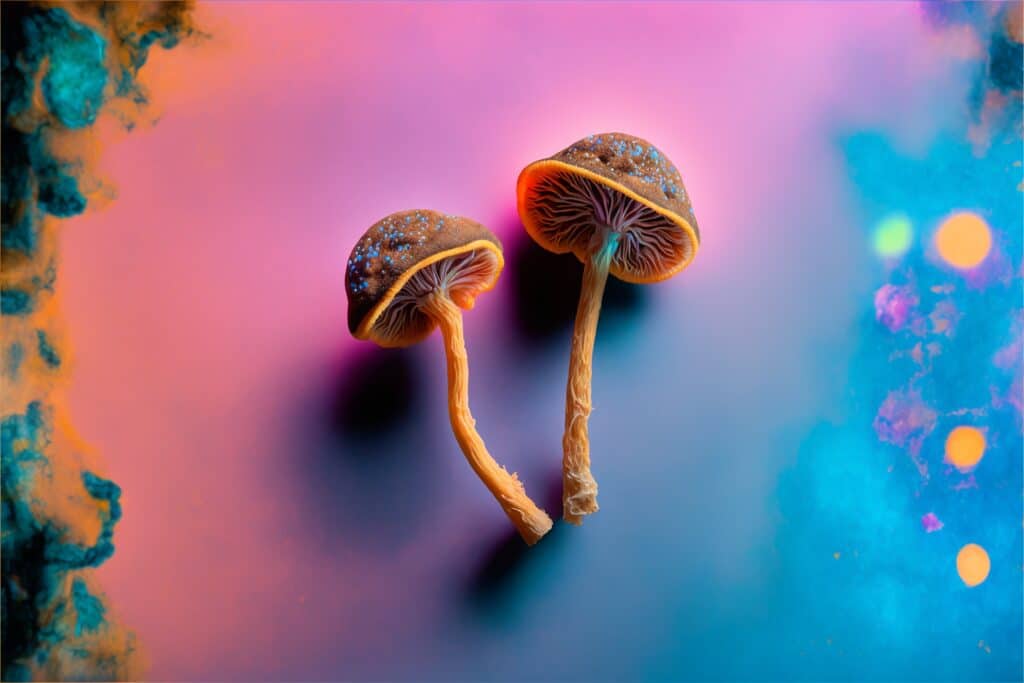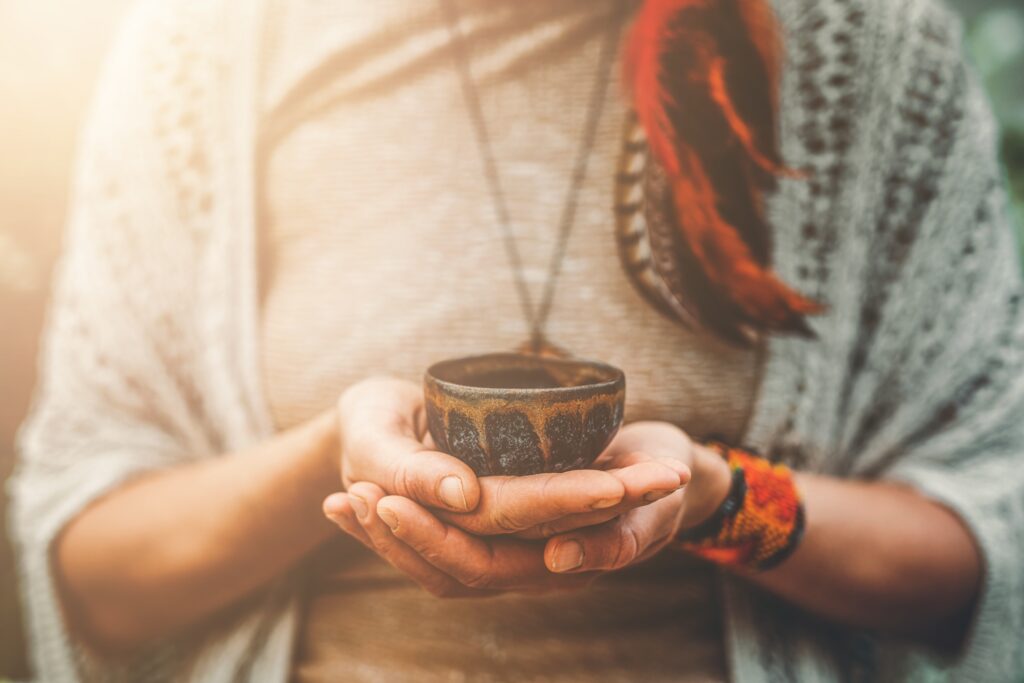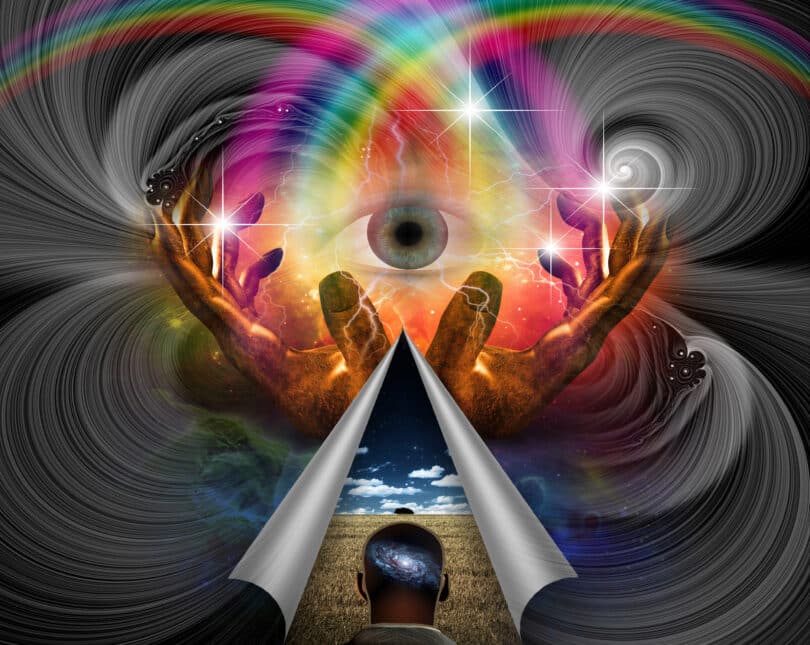It is not uncommon for intoxicating plants to be used spiritually/religiously, and this is often one of the first uses for which such compounds are legally approved. Peyote (the cactus that produces mescaline) is a prime example of this, as it is completely illegal in the U.S. with the exemption of its ceremonial use by certain Native American tribes. As of now, only registered members of the Native American Church are authorized to grow, possess, use, or transport peyote, although dozens of states are working to loosen these regulations over the coming years.
Thanks to the Religious Freedom Restoration Act, other churches that utilize different hallucinogens work on the same principle. Although not common or mainstream quite yet, psychedelic churches are gaining a foothold in the states in which they operate, giving people safe and legal access to hallucinogenic compounds that they otherwise would not be able to have.
What is a church?
The word church is derived from Old English cirice, “place of assemblage set aside for Christian worship”, from the Proto-Germanic kirika. This was probably borrowed via the Gothic from the Greek kyriake (oikia), kyriakon doma, “the Lord’s (house)”, from kyrios, “ruler, lord”. Kyrios in turn comes from the Proto-Indo-European language root *keue meaning “to swell”.
According to the Bible, a church is much more than just a building. It’s the body of Christ, or all the people who accept Christ as their lord and savior and follow his teachings. In the Bible, “church” never refers to a building specifically, but rather a gathering of two or more people in the name of Jesus Christ.
Sometimes, the word church is used for simplicity to refer to other buildings of worship, such as Muslim mosques and Jewish synagogues. Non-denominational Christians and people from other religious sects, including those use the entheogens in a spiritual fashion, also use the term “church” to describe their places of worship.
Psychedelic sacraments
A sacrament is a religious rite that is recognized as being of particular importance and significance to a denomination or sect. There are many different views and theories on the existence, number, and meaning of such rites. For example, in Christianity, baptism, communion, and marriage are among the seven sacraments that bring you closer to God.
The use of psychedelic substances as a sacrament, or in some type of spiritual or religious context, is not a new phenomenon by any means. The practice dates back thousands of years, however, in modern societies, that use has been restricted to occurring in a more secretive and underground manner because hallucinogenic substances are illegal and harshly stigmatized in most of the world.

The word itself, entheogen, has spiritual connotations. The root word “entheos” come from Greek and can be roughly translated to mean “full of the god, inspired, possessed”. It’s where the word “enthusiasm” was derived from, and was often used as a praise word for poets, painters, and other artists. The other part of the word entheogens comes from “genesthai”, which means “come into being”.
Altogether, the term entheogen describes a substance that causes people to become inspired to experience life in a spiritual and connected manner, and psychedelic churches exist to promote and defend the use of entheogens religiously. They view these sacred substances provided to us by mother earth are the key to understanding life, spirituality, and improving the condition of all humans on earth.
The Religious Freedom Restoration Act
A rising demand for natural hallucinogens has led to an increase in churches and retreat centers that facilitate spiritual psychedelic experiences. These drugs are still illegal in the US, but we do have a legal exemption that allows for religious use of such compounds – the Religious Freedom Restoration Act, a federal law enacted in 1993 which ensures that “interests in religious freedom are protected.”
This is a very broad definition and can be applied in many different, and some controversial, ways. Using it to protect use of entheogens is somewhat new, but a landmark 2006 Supreme Court decision to allow ayahuasca as a sacrament, brought by O Centro Espírita Beneficente União do Vegetal church (based in Brazil, with a branch in New Mexico), has been cited in over 1,200 judicial actions and law review articles to date.
Unfortunately, many of these churches are fighting legal battles, and many are pointing to the aforementioned case in New Mexico in order to protect their right to use hallucinogens in their ceremonies. Some are coming out of victorious, like a church in Oregon that sued for ayahuasca use and won. Others, sadly, are facing long, drawn out court battles, like Soul Quest Church of Mother Earth from Florida, who is hoping an appeal court can revive their challenging of a DEA ruling that prohibits their use of ayahuasca tea as a sacrament.
“In every major city in the United States, every weekend, there’s multiple ayahuasca ceremonies. It’s not just a twice-a-year thing,” said Sean McAllister, who represents an Arizona church in a lawsuit against the federal government after its ayahuasca from Peru was seized at the port of Los Angeles.

But the popularity of hallucinogens is a double-edged sword. On one hand, it has led to more research and some loosened restrictions on certain substances (at an incredibly slow rate, but it’s better than never). On the other hand, it has also led to some increased scrutiny about the safety of the drugs, as well as the churches and retreats themselves. Many churches felt it was more effort than it was worth, and have chosen to stop operating entirely over fears of prosecution.
Lotus Entheogenic Church
Formerly known as Zide Door, Lotus is situated discreetly in one of Oakland’s industrial zones, and they have plans to open another location in Los Angeles, and more throughout California in the future. This self-described Church of Entheogenic Plants reminds me a lot of the early days of Prop 215 dispensaries in California, or Bill Levin’s First Church of Cannabis in Indianapolis. Although Dave Hodges founded his mushroom church for very different reasons than Bill and his weed church, the feelings of love, openness, and community are quite similar in both.
Hodges has been working in the cannabis industry for decades, took a 3-year hiatus, then reappeared on the scene after Oakland decriminalized magic mushrooms for personal use in June 2019. Although Hodges’ church does not attempt to proselytize in any way, they do require that you provide a government-issued form of identification (18+ year old minimum age) and sign a waiver stating that you’re not affiliated with law enforcement and that you “accept entheogenic plants as part of your religion”. They also do a quick background check to make sure potential members are not registered sex offenders.
Once inside you walk through a small altar area and go to the back room, where you’ll be greeted by an assortment of cubensis products such as dried ready-to-eat mushrooms, infused chocolate bars, and an assortment of teas. On any given day, you can find roughly a dozen (sometimes more) strains to choose from such as Albino Penis Envy, Golden Teachers, and Cambodian.
Becoming a member
How you go about becoming a member varies depending on the exact church in question, but the overall process is pretty similar across the board, and goes something like this:
- Sign up online
- Provide basic info
- Pass background check (no law enforcement or sex offenders)
- Provide a donation
- Receive sacrament
It’s hard to say how long it will take to go through the process from start to finish (from signing up online to receiving the psychedelic sacrament), but I would assume anywhere from two to six weeks. I just completed the first portion of the process at an entheogenic church, and I’m waiting to hear back about the next steps so I will update you all when I know more.
Final thoughts
Psychedelic churches are still on society’s fringe, but they’re steadily growing in popularity as the world begins to open its arms to hallucinogenic research and therapy. In the next few years, I would not be surprised to see at least one in almost every state, and many in other countries as well. It’s currently one of the only legal ways for many people to access psychedelic drugs, so without a doubt demand for these institutions will continue to rise.







